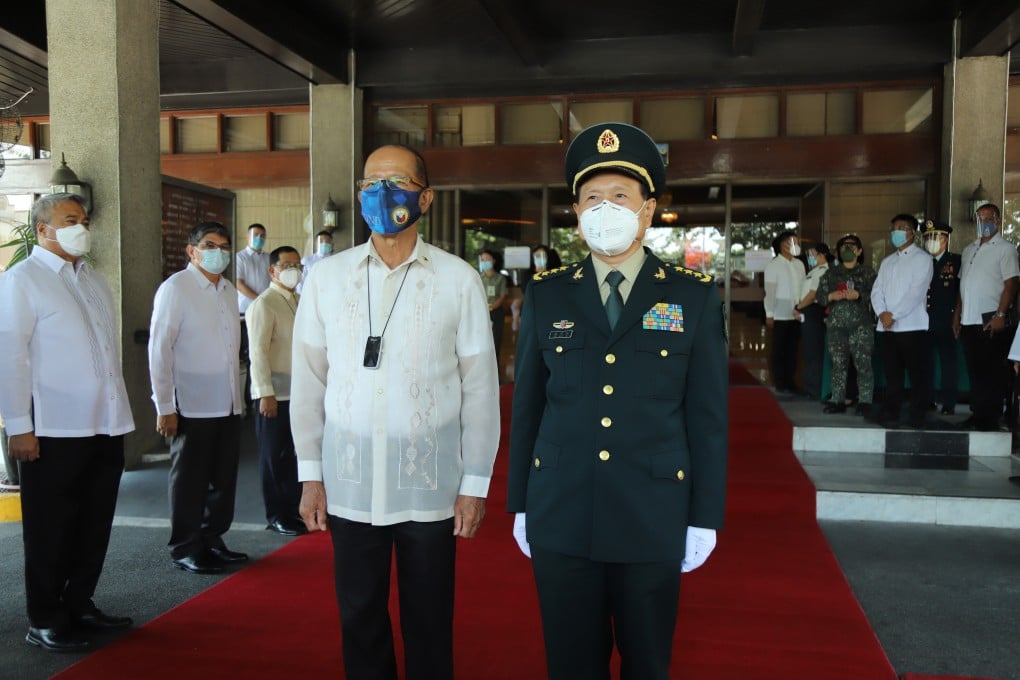China, Philippines defence chiefs discuss South China Sea as Beijing pledges US$20 million donation
- Chinese defence minister Wei Fenghe met his counterpart Delfin Lorenzana as well as President Rodrigo Duterte on a high-profile visit to Manila
- The trip, which came after four lower-key visits to Southeast Asian capitals, also saw Beijing donate US$20 million worth of non-combat equipment

Beijing’s latest donation came on top of a May gift of US$292,000 worth of medical supplies and personal protective equipment from China’s defence ministry, and US$30.8 million worth of engineering equipment provided to the Philippine armed forces last year.
Wei and Lorenzana also agreed to continue revising the 2004 Philippines-China memorandum of understanding on defence cooperation, which would pave the way for “more personnel exchanges, training, and better communications channels” between the two militaries, according to a press release issued by Lorenzana’s office.

01:05
‘China has the arms, we do not’, Duterte rules out confronting Beijing in the South China Sea
The Chinese defence ministry’s statement added that the Chinese military was willing to strengthen its ties with the Philippine armed forces. It stressed that maintaining the stability of the South China Sea was a shared responsibility of the two countries, and that disputes in the waterway should be resolved through consultation.